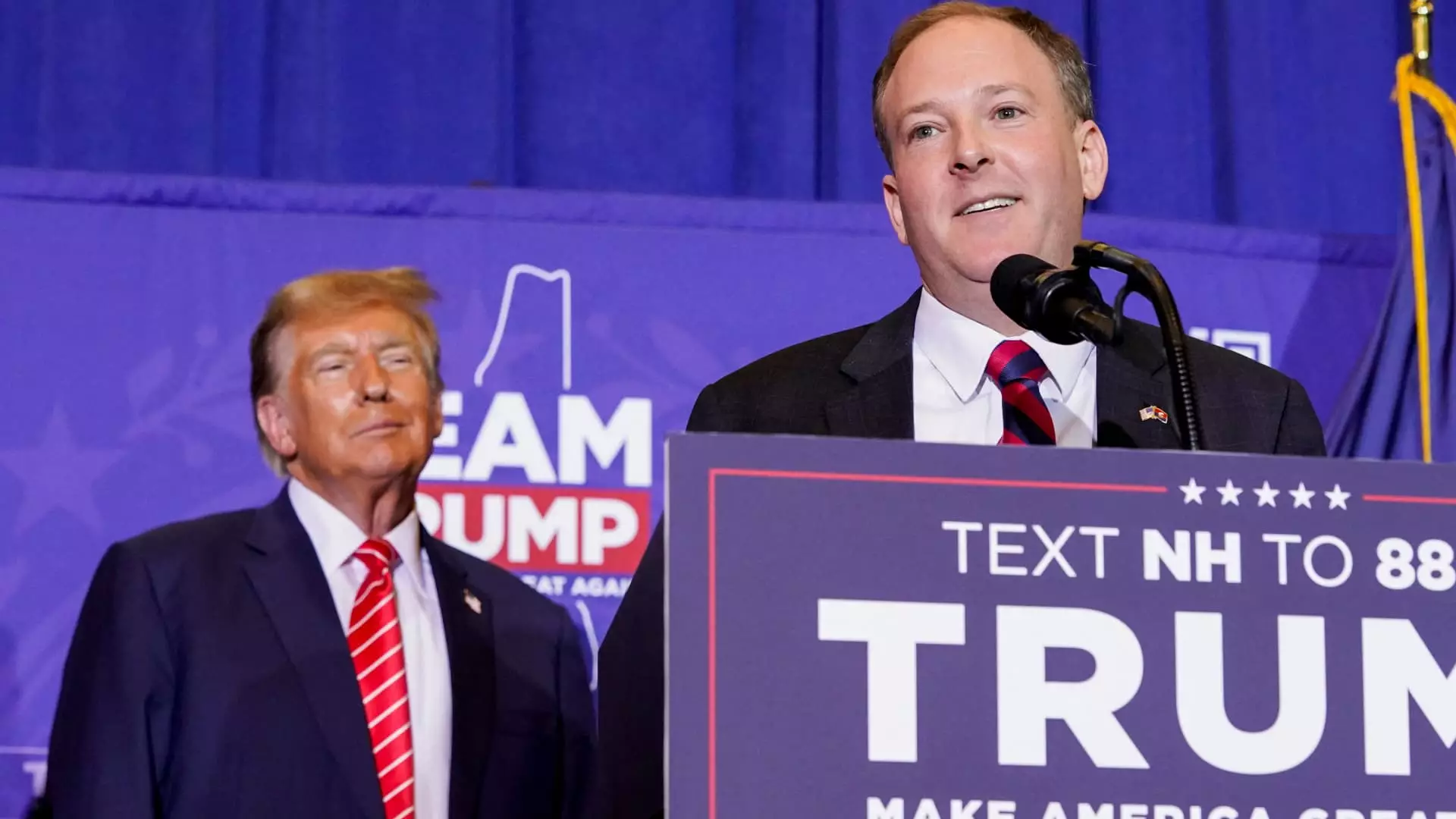In a move that has generated considerable discussion, President-elect Donald Trump announced on Monday his intention to appoint former Congressman Lee Zeldin as the next administrator of the Environmental Protection Agency (EPA). Alongside Zeldin, Representative Elise Stefanik is set to take on the role of U.S. ambassador to the United Nations. Both individuals hail from New York and share strong Republican credentials, signaling a continuation of Trump’s America First agenda. Yet, their appointments have ignited a firestorm of criticism regarding the environmental implications of their policies.
Zeldin, who served four terms representing a Long Island congressional district, is a firm advocate for deregulation. Trump praised him as a “true fighter for America First policies,” underscoring Zeldin’s commitment to adjusting environmental regulations to favor business interests. In his statement, Trump emphasized Zeldin’s goal to “unleash the power of American businesses” while ostensibly preserving environmental standards. However, critics view this mantra as potentially harmful, fearing that the push for business-friendly policies will come at the expense of the nation’s air and water quality.
Zeldin expressed excitement about joining Trump’s Cabinet, boasting of intentions to enhance the U.S. energy sector, revive domestic manufacturing, and position the United States as a leader in artificial intelligence—all under the premise of environmental protection. This juxtaposition raises questions about the feasibility of balancing robust economic growth with stringent environmental safeguards.
Despite such lofty goals, Zeldin’s environmental record paints a starkly different picture. He holds a dismal lifetime rating of just 14% from the League of Conservation Voters, predominantly due to candid votes against environmental legislation. Such a score raises serious concerns about his commitment to the core mission of the EPA, which is to uphold and enforce regulations that protect the environment. The Sierra Club’s Executive Director, Ben Jealous, openly denounced Zeldin’s nomination, framing it as a blatant prioritization of corporate interests over public health and environmental integrity.
This criticism highlights a growing discontent among environmental advocates, who argue that appointing official figures with a history of anti-environmental voting creates a precedent that undermines the very purpose of the EPA. These sentiments reflect a broader apprehension regarding the Trump administration’s tendency to lean towards industry-friendly stances, particularly concerning climate change and environmental regulations.
Alongside Zeldin, Elise Stefanik’s selection as U.N. ambassador marks a new chapter in Trump’s foreign policy strategy. Stefanik, the first member of Congress to endorse Trump, has maintained a visible role in the legislative arena, serving as chair of the House Republican Conference and participating in key committees related to armed services and intelligence. Trump emphasized her advocacy against antisemitism on college campuses, indicating a focus on social issues as part of her role at the U.N.
However, the selection of Stefanik carries potential implications for the Republican majority in the House. Should she be confirmed, her departure would contribute to a shift in party dynamics, especially if margins in the House of Representatives remain close. What’s more, the complexities of her role as a representative and global ambassador add layers of responsibility that could challenge the GOP’s agenda both domestically and abroad.
As Trump’s administration prepares to move forward with these appointments, the implications of Zeldin’s and Stefanik’s selections are already drawing scrutiny. Environmental protection advocates worry about the erosion of regulations that could stem from Zeldin’s leadership at the EPA, while Stefanik’s role at the U.N. could reshape the Republican approach to international relations.
With the administration’s objectives still unfolding, observers on both sides of the political spectrum will closely monitor how these appointments will influence key policy areas. At the intersection of business, environment, and international diplomacy, the upcoming chapters of this administration promise to be fraught with contention, reflection, and a test of core American values surrounding environmental stewardship and global engagement.

Leave a Reply